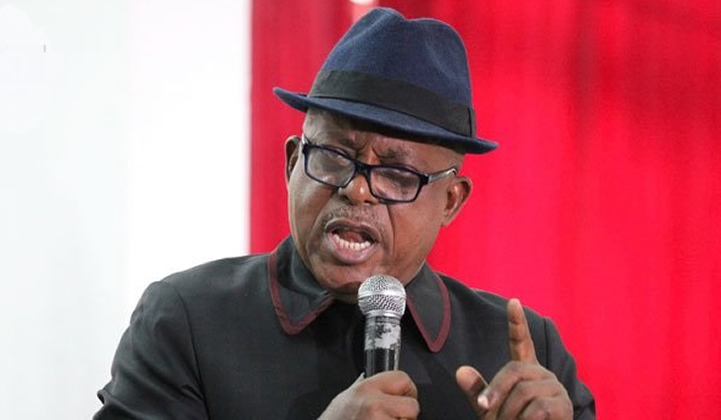The political landscape of Rivers State, Nigeria, is fraught with tension following the suspension of Governor Siminalayi Fubara by President Bola Tinubu. Uche Secondus, a prominent figure in the Peoples Democratic Party (PDP) and former national chairman, has publicly urged President Tinubu to reinstate Governor Fubara, arguing that this is the only path to respecting the democratic will of the people. Secondus contends that the appointment of Ibok-Ete Ibas as Sole Administrator has further destabilized the state, creating a volatile situation akin to a “keg of gunpowder.” This appeal comes amidst growing concerns about the implications of the President’s actions on the stability and future of Rivers State.
The controversy stems from a prolonged political crisis that prompted President Tinubu to declare a state of emergency in Rivers State in March. This declaration led to the suspension of not only Governor Fubara but also his deputy and the members of the State Assembly. While the specific details of the crisis remain somewhat ambiguous, the President’s intervention highlights the severity of the situation. Secondus’s plea underscores the potential for further unrest if the elected government is not restored. He has explicitly warned about the precariousness of the current arrangement, suggesting that the Sole Administrator’s actions are exacerbating tensions and pushing the state towards a breaking point.
Secondus’s appeal directly challenges the legitimacy of the Sole Administrator’s authority, emphasizing the importance of upholding the people’s mandate. He argues that Fubara’s election victory reflects the will of the Rivers State electorate and that his suspension disregards this democratic principle. This argument resonates with broader concerns about the balance of power between the federal government and individual states within Nigeria’s federal system. The suspension of a duly elected governor raises questions about the potential for executive overreach and the implications for democratic processes across the country.
Adding another layer of complexity to the situation is the ethnic dimension. Secondus specifically commended the Ijaw nation, a significant ethnic group in Rivers State and other parts of the Niger Delta region, for their restraint in the face of these political upheavals. This acknowledgment points to the potential for ethnic tensions to escalate if the situation remains unresolved. The Ijaw people have historically played a prominent role in the region’s politics and resource control struggles, and their response to the current crisis is crucial for maintaining stability. Secondus’s praise for their restraint indicates the delicate balance that must be maintained to prevent the political crisis from spiraling into ethnic conflict.
As the political standoff continues, the Rivers State House of Assembly Ad-Hoc Committee on Rivers State Oversight has summoned the Sole Administrator, Ibok-Ete Ibas, for an interactive session to address the state’s affairs. This move indicates an attempt to exert some level of oversight and accountability on the Sole Administrator’s actions. However, the effectiveness of this intervention remains unclear, given the broader context of the state of emergency and the suspended government. The invitation also highlights the ongoing struggle for control and influence over the governance of Rivers State.
The situation in Rivers State is further complicated by its strategic importance as an oil-producing region. Control over resources and revenue generation has historically been a significant source of political contention in the Niger Delta. Secondus’s statement alludes to this underlying dynamic, suggesting that the current crisis is partly driven by a struggle for control over the state’s resources. This adds another layer of complexity to the political maneuvering and highlights the potential economic ramifications of the ongoing political instability. The prolonged disruption of governance could have far-reaching consequences for the state’s economy and the well-being of its citizens.














